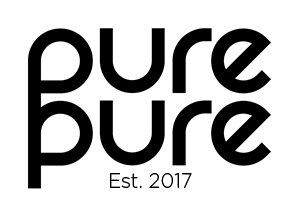
How To Have a Fast Recovery?
Experiencing different types of illnesses, sickness, and injury can be traumatic and cause us to lose control of our lives. A balanced diet, regular exercise, adequate sleep, and social support can help alleviate or manage the effects of disease or injury and speed up recovery. Keeping a good attitude will also help you heal faster from illnesses and other painful situations.
Furthermore, if you’ve been working out hard, you’ve probably encountered delayed-onset muscle soreness (DOMS), which is a debilitating muscle ache that occurs days after a strenuous workout. The following are tips on having a fast recovery if you happened to find ways to deal with pain.
Drink your Fluids
Most people will agree that water is essential to every living being. Athletes and others involved in physical therapy activities can drink plenty of water to stay hydrated. Maintaining your body’s hydration is vital to your recovery, whether you’re recovering from an accident, surgery, or a workout.
Since the average adult human body is mainly water, maintaining a proper balance of water and electrolytes is critical for the appropriate functioning of our systems, including nerves and muscles.
Furthermore, most foods contain electrolytes, including magnesium, potassium, calcium, and sodium. These minerals are essential for your nervous system and are depleted during muscle contraction. Good eating habits and a diet rich in fruits and vegetables will help you get enough electrolytes for muscle recovery.
Get Some Sleep
If you catch a cold, devote a whole day to lying in bed and resting. When you allow yourself to get extra sleep when you most need it, you might be shocked at how much faster you recover.
A good rest is essential for your immune system to work correctly. You produce more white blood cells when sleeping, which attack viruses and bacteria. When you’re recovering from an injury or major surgery, your body is working overtime to help you heal.
If you don’t get enough sleep, your immune system can be weakened, making it difficult to battle common infections. And you don’t need it when you’re recovering. When healing from an accident or surgery, the same is true. While we may feel compelled to get up and resume our lives as soon as possible, doing so may potentially impede our bodies’ ability to recover.
Eat Nutritious Food
Indeed, it would be best if you always watched what you eat. When you’re sick, your body works nonstop to rebuild and restore itself. It is best to choose foods that are high in nutrients, preferably fruits and vegetables. By doing this, you will provide your body with the proper nutrients, and you can offer it with the necessary building blocks for healing.
Furthermore, foods high in vitamins are necessary and highly effective to combat illnesses. This antioxidant, which is high in broccoli, strawberries, and kiwis, helps the immune system fight bugs.
Also, you must include foods high in protein, such as lean meats, lettuce, fish, and nuts. Protein is essential for getting back on your feet because it strengthens and repairs bodily tissues.
Avoid Heavy Workouts
For people suffering from muscle pain, it is best to avoid doing challenging exercises in the meantime. It is because your body is in a state that it needs to recover. If you’re sore after a workout, gentle recovery exercises like walking or swimming are healthy. They could even be helpful and aid in your recovery. However, if you’re tired or in pain, you can take a break.
Take a day off, go for a stroll, or do a mild aerobic workout with stretching. A dynamic warm-up and stretching routine will aid in delivering healing blood to the muscles. If you ever feel too tired for your workout after warming up, take a day off or keep your exercise light.
After you’ve rested:
- Try some light cardio or a modified version of your previous workout: Use lighter weights or none at all.
- Do fewer sets.
- Operate with lower overall strength.
Avoid Drinking
It’s not your imagination if you find that healthier people tend to recover from wounds or fractures quicker than others. Your general well-being is influenced by your lifestyle decisions and how long it takes to recover from an accident or injury. Drinking and having a poor diet all affect how quickly you recover.
While the occasional drink isn’t harmful to your well-being, daily alcohol intake slows down the healing process after an accident. Since alcohol causes swelling and inflammation, the healing process may take longer. It is because drinking alcohol thins the blood, causing it to circulate quicker and collect around wounded areas.
Furthermore, alcohol can also make it more challenging to experience pain. As a consequence, you may not take as many steps as someone who can sense every movement. When under the influence of alcohol, you can also slip or fall. It could aggravate an existing injury or result in new damage.
Quit Smoking
Smoking is harmful to your health, particularly if you are injured. Tobacco use causes the blood vessels to constrict, making it more difficult for your body to receive the therapeutic nutrients it needs. It also prevents oxygen from reaching wounds and soft tissue injuries, which is essential for healing.
In addition to that, smoking affects the bones, rendering them weaker, while muscles take longer to recover, slowing down the healing process. You’re also at a higher risk of bone and vascular disease, as well as muscle tears and chronic tendon inflammation.
Properly Take your Medications
Many people do not obey their healthcare provider’s advice about taking drugs for a variety of factors. For example, not following the instructions, forgetfulness, taking several medications with different regimens, experiencing adverse side effects, or the medicine not working.
Your doctor prescribed your medicine to assist you in recovering from your illness; hence, you must always take it as directed. It is essential to take your drugs exactly as prescribed by your doctor to get the most satisfaction from them. In reality, you are taking your drugs as prescribed increases your chances of a better health outcome.
Takeaway
Recovering from illnesses sometimes brings negative emotions to a person. Some people tend to feel depressed when they are sick, and it’s normal. However, being stress and depressed can slow the progress of your recovery.
When you’re sick, being positive may be the last thing on your mind, but there’s growing proof that optimism may help you heal faster. You may not be able to change your illness’s circumstances, but you may change your mindset.






